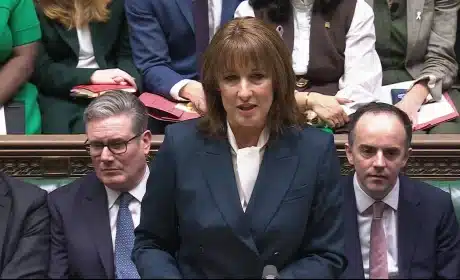What a Labour Government Means for Landlords
10th July 2024

With the Labour Party’s recent victory in the UK general election, Keir Starmer’s leadership promises significant changes across various sectors, including the rental market. For landlords, understanding these potential shifts is crucial for navigating the evolving landscape. This article explores the implications of a Labour government for landlords and provides insight into what to expect in the coming years.
Stricter Regulations and Tenant Protections
One of the key aspects of Labour’s housing policy is the implementation of stricter regulations and enhanced tenant protections. This includes:
- Rent Control: Labour has proposed introducing rent controls to ensure fair pricing in the rental market. This measure aims to prevent excessive rent hikes, which could impact landlords’ rental income.
- Security of Tenure: The party advocates for longer-term tenancies, giving tenants more stability and making it harder for landlords to evict tenants without a valid reason.
Energy Efficiency Standards
Labour plans to prioritise environmental sustainability by raising energy efficiency standards for rental properties. By 2030, all rental homes must meet specific energy efficiency criteria. Landlords may need to invest in upgrades and renovations to comply with these standards, which could involve significant initial costs but lead to long-term savings and environmental benefits.
Tax Reforms and Financial Implications
Labour’s proposed tax reforms include changes that could directly impact landlords:
- Mortgage Interest Relief: The party may review or reverse changes to mortgage interest relief, affecting the financial calculations for landlords with mortgaged properties.
- Capital Gains Tax: There could be an increase in capital gains tax, particularly on second homes and rental properties, impacting landlords’ profitability when selling their assets.
Social Housing Expansion
Labour plans to invest in social housing, increasing the availability of affordable homes. While this initiative aims to address housing shortages, it could result in increased competition for private landlords, particularly in areas with new social housing developments.
Enhanced Local Authority Powers
Local authorities under a Labour government might receive greater powers to regulate the private rental sector. This includes stricter licensing requirements and increased inspections to ensure landlords comply with health and safety standards.
Opportunities for Landlords
While some of these changes present challenges, there are also opportunities for landlords:
- Sustainable Properties: Investing in energy-efficient upgrades can make properties more attractive to eco-conscious tenants and potentially qualify for government incentives.
- Stable Tenancies: Longer-term tenancies can lead to more stable rental income and reduced turnover costs for landlords.
Conclusion
The Labour government’s policies signal significant changes for landlords in the UK. While stricter regulations and enhanced tenant protections may pose challenges, there are also opportunities to adapt and thrive in the evolving rental market. By staying informed and proactive, landlords can navigate these changes and continue to succeed in the new landscape.
Contact Us
For more guidance, or specific advice on your investment property, please don’t hesitate to get in touch with one of our friendly team on 01273 645797 or email belong@coapt.co.uk

Budget Summary at a Glance
26th November 2025
A chaotic start with early publication from the OBR, but here’s what actually matters from today’s fiscal plan: Budget Summary…

Budget Chaos and What It Means for Brighton & Hove Landlords
26th November 2025
Well that was interesting! Today’s Budget took an unexpected twist when the details were released in full and online by…

Renter’s Rights Bill receives Royal Assent: What landlords need to know
28th October 2025
RRB has since received Royal Assent after this article was published. Just over a year since it was first brought…